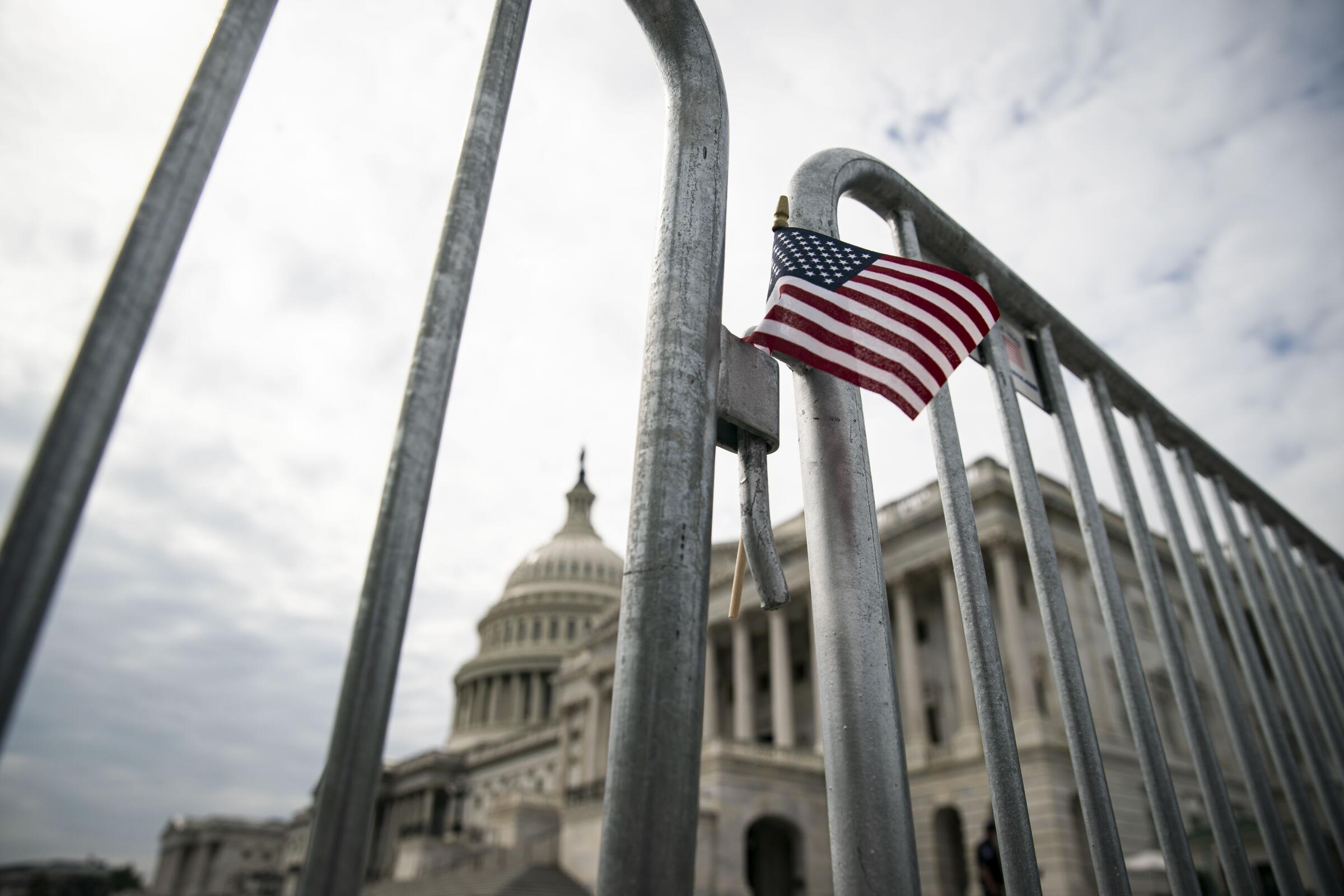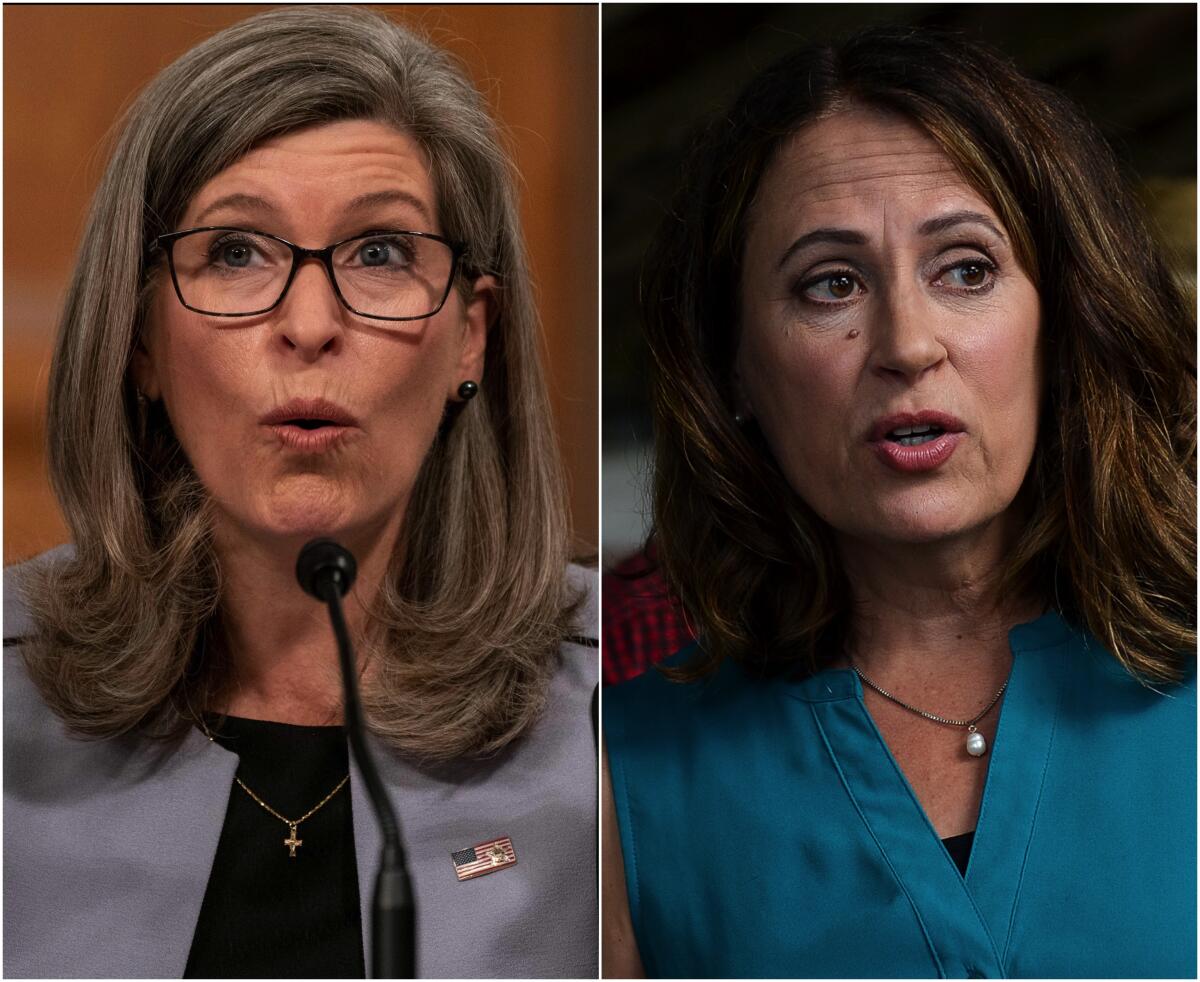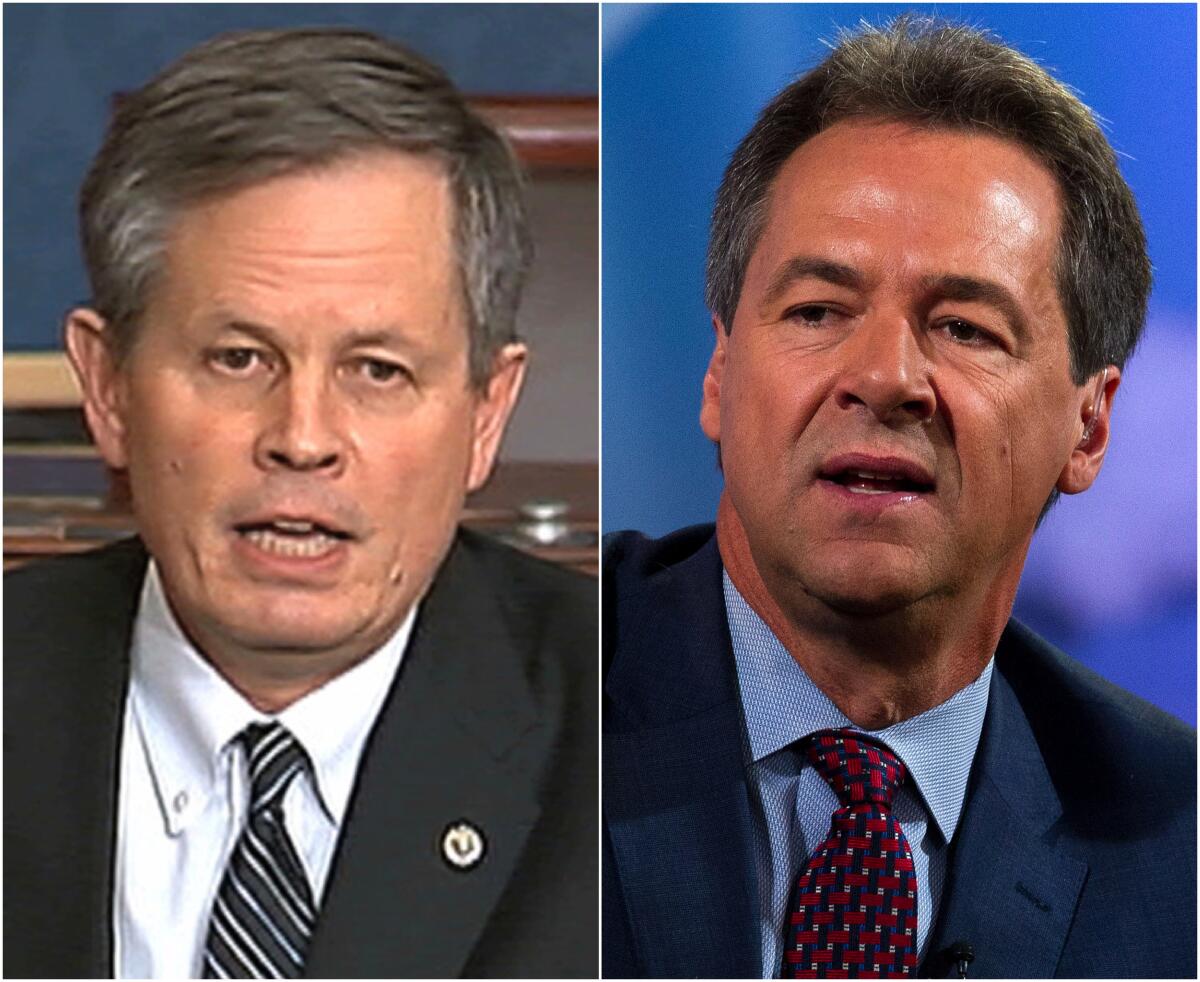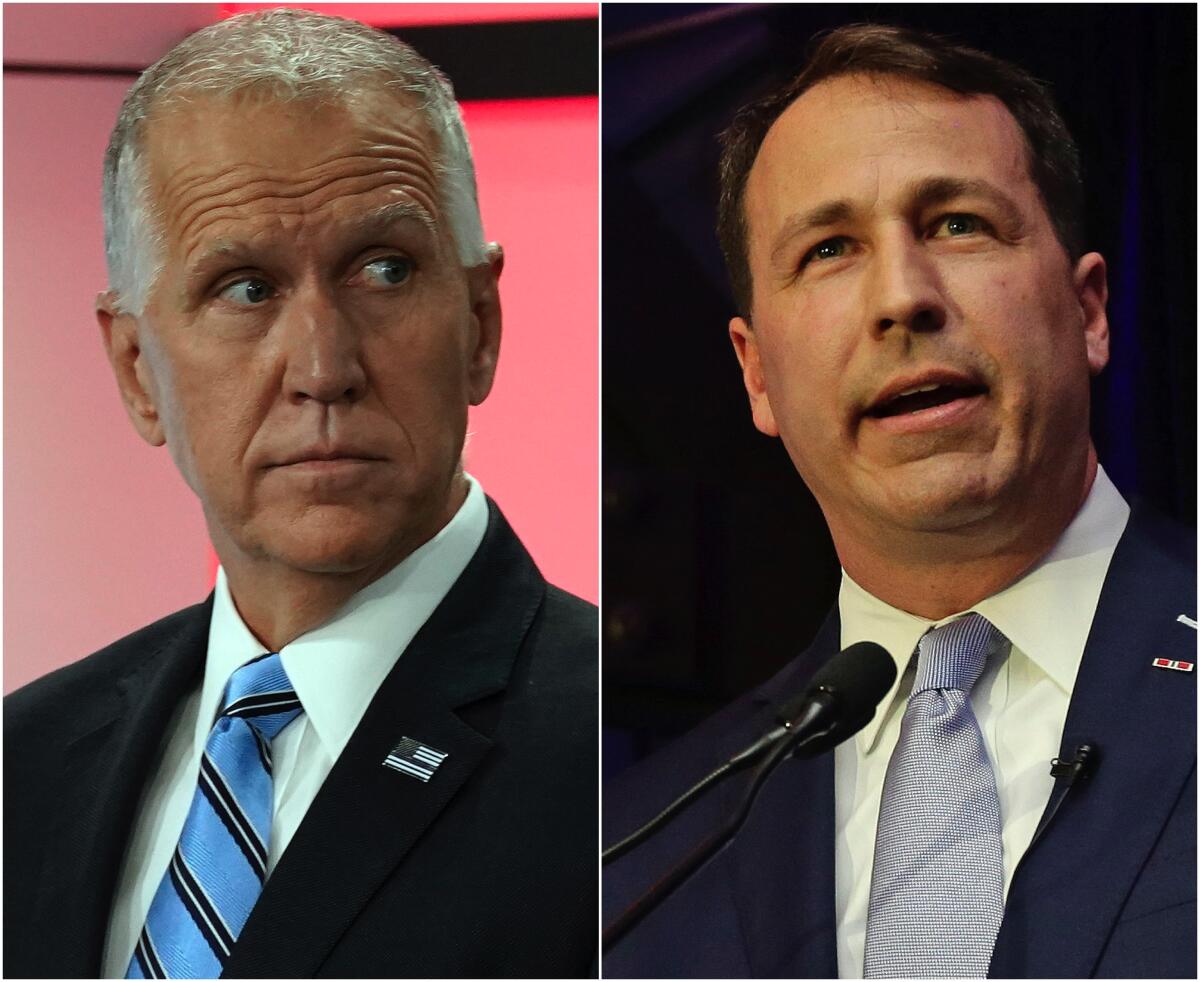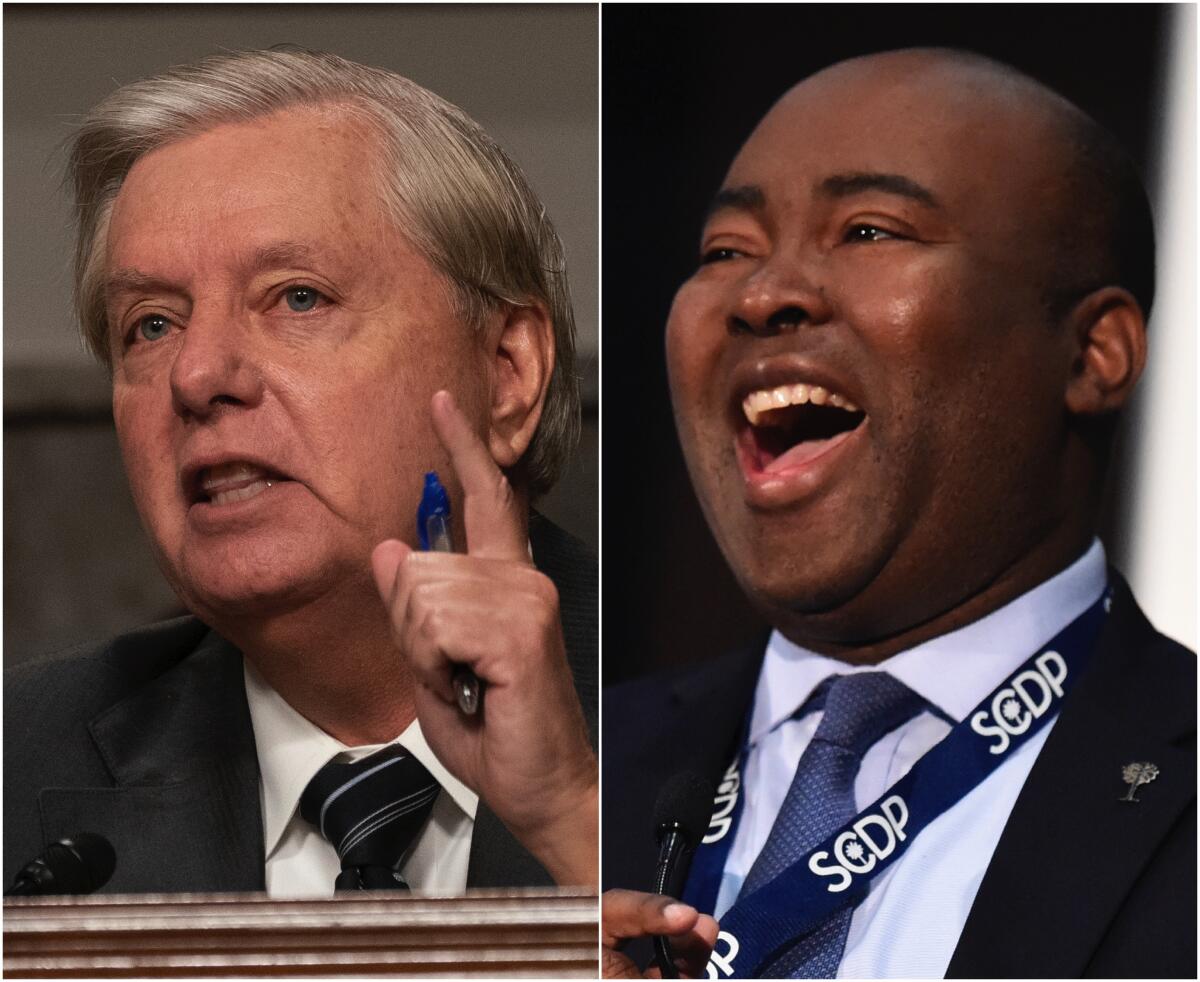Get the L.A. Times Politics newsletter
Deeply reported insights into legislation, politics and policy from Sacramento, Washington and beyond. In your inbox twice per week.
You may occasionally receive promotional content from the Los Angeles Times.
Follow Us
Janet Hook covered national politics for the Los Angeles Times until October 2021. She returned to the Washington bureau in 2018 after spending eight years covering politics and Congress for the Wall Street Journal. Her first stint with The Times was in 1995-2010 covering Congress and politics. She was a fellow at the Harvard Kennedy School Institute of Politics and received the Everett Dirksen Award for reporting on Congress, the Carey McWilliams Award for political reporting and the John S. Knight Fellowship for Professional Journalists. She is a graduate of Harvard University.
